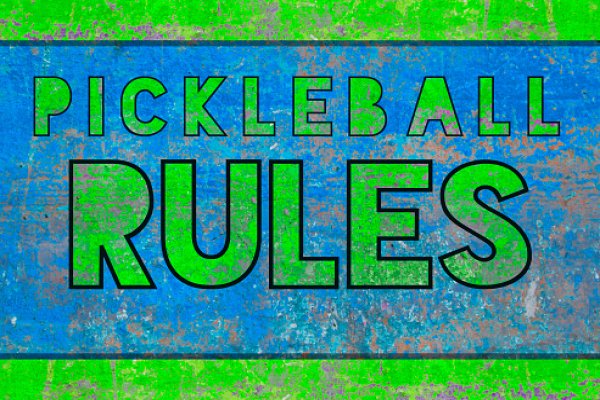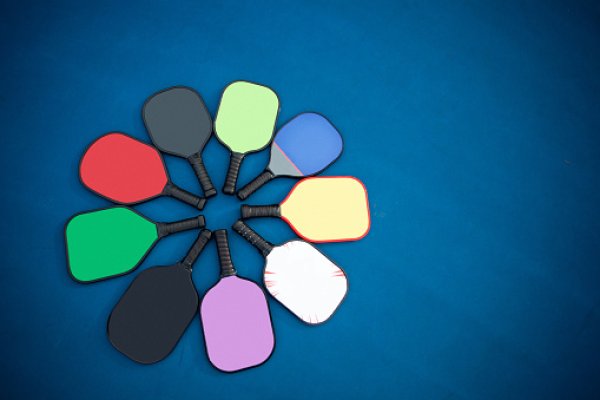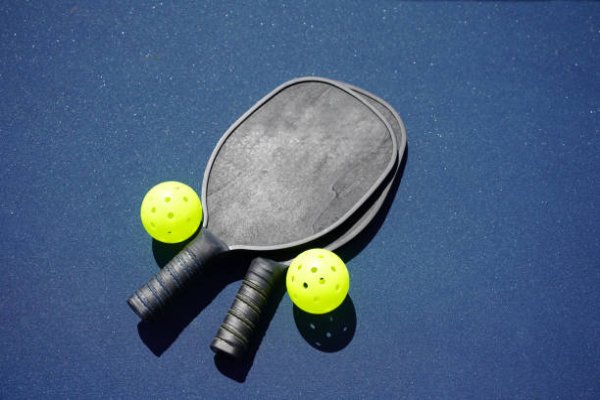Ever thought about turning your passion for pickleball into a profession? I sure have, and let me tell you, it’s a game-changer. Becoming a certified pickleball instructor not only sharpens your skills but also opens up a world of opportunities to teach and inspire others.
To become a certified pickleball instructor, you’ll need to go through a certification process. It’s not just about how well you can play the game. It’s about understanding the rules, learning how to teach, and knowing how to create a fun and safe environment for your students.
Getting certified isn’t easy, but it’s worth it. You’ll gain the knowledge and confidence you need to teach others and share your love for the game. So let’s dive into the world of pickleball instructor certification and find out what it takes to become a pro.
What is pickleball instructor certification?
Pickleball instructor certification, to put it simply, is the validation of one’s ability to instruct pickleball. But, it’s far more than just a piece of paper or a title to add to your name. It’s something you should consider if you have a burning passion for the game and a desire to spread that same love for pickleball to others with professionalism and authority.
Certification comes from reputable organizations such as the Professional Pickleball Registry (PPR) and USA Pickleball. These organizations provide standardized courses designed to equip aspiring instructors with everything they need to teach the sport effectively. The completion of these courses serves as the first step to becoming a certified professional pickleball instructor.
From the basics of game play and teaching psychologies to knowing the in-depth rules and safety measures, these certification courses cover a lot of ground. These aren’t self-paced online classes. They are rigorous, hands-on training sessions that take you through the many aspects of pickleball – from strokes, strategies, and compositions to drills and simulations.
But gaining certification isn’t just about learning. It’ll test your capacity to imbibe and apply all that knowledge. It’s one thing to understand the individual elements of the game; it’s entirely another to tie them all together and present them as teachable lessons. During your training, you’ll face a practical evaluation. Based on this evaluation, the authorities decide whether or not one is ready to instruct beginners, intermediate or advanced players.
Perhaps you are already teaching pickleball on an informal basis. But official certification provides a seal of assurance to students and establishes your credentials in a professional setting. Equipped with this certification, you’ll have no trouble imparting your skills and knowledge of the game in a fun, safe, and effective manner.
Why become a certified pickleball instructor?
Becoming a certified pickleball instructor might seem like a significant commitment at first glance; however, the journey towards certification carries a multitude of benefits. First and foremost, certification sets you apart in the industry. With an official seal of proof, you demonstrate your dedication, professionalism, and authority in the sport. Organizations such as USA Pickleball and the Professional Pickleball Registry provide comprehensive programs where you’ll engage in rigorous trainings and hands-on evaluations.
After obtaining your certification, you’ll notice a boost in both skills and confidence. These programs equip you with intricate knowledge about the game, its rules, and essential safety measures. Also, you’ll master various teaching psychologies, enabling you to tailor your teaching methodologies based on different skill levels. Besides the technicalities, the certification enhances your people skills, preparing you like no other to handle different personalities and levels of enthusiasm among your pupils.
In the business aspect, being a certified pickleball instructor can work wonders for your career. With the continuing popularity of the sport, certified instructors are in high demand. Sports clubs, schools, and recreation centers, among many, are constantly seeking professional instructors with proven expertise and credentials. With a certification in hand, the opportunities are endless. This allows you to turn your passion into a rewarding career.
Another perk of obtaining certification – it provides greater confidence for your students. It’s no secret that learners, whether they are beginners or advanced players, prefer someone with a certified status teaching them. This seal of approval provides an assurance of quality and professional instruction, boosting their trust in your potential and capability.
Let’s not discount the added joy of teaching. Interactive sessions with a variety of players give you the chance to impact lives, shape journey and advocate for a sport you love. Sharing the joy of pickleball and seeing your students progress under your guidance is a satisfying experience that can’t be quantified.
While the certification process might sound daunting, the rewards of investing your time and energy in becoming a certified pickleball professional are endless.
The certification process
The first step toward certification typically involves applying through a recognized certifying body such as USA Pickleball or the Professional Pickleball Registry. Their online platforms provide detailed information on prerequisites, the application process, and what you can expect from their certification programs.
Upon application, I’ll generally need to present proofs of my previous pickleball experience or related qualifications. Some organizations require a minimum playing ability or coaching experience, while others allow beginners to apply.
Once my application is accepted, it’s time to dive into the training. These highly detailed, skill-enhancing training programs cover a range of pickleball-specific topics like strategies, game rules, player development, and instructional techniques.
My journey through the certification program isn’t just about theory. It’s a rich blend of online learning, practical sessions, and hands-on evaluations. These programs require a good amount of practice and give me ample opportunities to instill my teaching techniques and test my proficiency in real-life scenarios.
The training culminates with an assessment that tests my ability to teach and manage a pickleball session efficiently. Comprehensive assessments are carried out under the direct supervision of certifying body representatives or experienced pickleball instructors. Depend on the certifying organization, the evaluation methods include but not limited to video submissions or live evaluations.
Once I clear this evaluation phase, I’m awarded the much-awaited pickleball instructor certification indicating I’ve reached a certain level of competence and that I’m ready to take on the role of a pickleball instructor. As a certified instructor, I’ll stand out from the crowd, opening doorways to a multitude of opportunities.
Certification isn’t a one-time process. For maintaining this acclaimed status, I must continuously update my skills and stay ahead of the latest trends and rules in the rapidly evolving sport of pickleball. Many certifying organizations require instructors to participate in continued education opportunities in order to maintain their certification status.
Understanding the rules of pickleball
As you journey towards becoming a certified pickleball instructor, it’s critical to do more than just registering with USA Pickleball or the Professional Pickleball Registry. You’ve got to know the sport inside and out, and that all starts with understanding the rules of pickleball.
Pickleball is a mix of tennis, badminton, and table tennis, borrowing elements from each to create its unique brand. Its court is smaller than that of tennis, yet the strategies employed in both games bear similarities.
Serving in the game should be done underhand with the paddle below the waist, and the serve initiates diagonally. Only the serving team can score and teams must use a double-bounce rule, letting the ball bounce once on each side before volleys are allowed.
Additionally, there’s an area called the “non-volley zone” or “kitchen” in a pickleball court. Players can’t volley the ball while standing in the kitchen unless they let the ball bounce first. It sounds simple but mastering these parameters and game strategies are what I believe truly sets the sport apart.
In the world of pickleball, these rules don’t merely represent guidelines but the language of the game in its purest form. Only once you’ve mastered this language can you truly begin to pass on your knowledge, nurturing your playstyle into your students, and guiding them towards becoming hallowed ball-masters in their own right.
To move forward on your journey toward becoming a certified pickleball instructor, I suggest immersing yourself in the rules and regulations provided by the certifying bodies. It’s not just about learning but understanding, internalizing, and be able to relay these rules as part of your teaching curriculum effectively.
Learning how to teach pickleball
Now that we’ve covered the basics of pickleball and its key rules, let’s pivot toward the coaching aspect. Teaching pickleball is a different is not just about being good at the game – it’s about conveying your understanding, experience, and strategies efficiently to your students.
To start with, I’ve found that patience is a cornerstone in learning how to teach pickleball. It’s essential to remember that not all students will grasp the gameplay or rules at the same pace. Thus, adjusting your teaching pace to meet the needs of your students plays a critical role in being an effective pickleball coach.
Experimenting with various teaching strategies is another aspect to consider. Classroom-style theory sessions, visual aids, video reviews, and on-court practice drills are just a few methods you can employ to help your students learn and adapt to the rules and techniques. It’s all about figuring out what works and applying it.
Next, communication is an integral part of teaching pickleball. You must be clear, concise, and bi-directional while communicating with your students. Deliver clear instructions during training sessions, provide specific feedback about their gameplay, and above all, create an environment where they feel comfortable asking questions and sharing their concerns.
Then comes the mental preparation – both yours and your students. As an instructor, you should instill the importance of mental toughness in pickleball players. Stress on the importance of resilience, focus, and a positive mindset to overcome challenging match situations.
Finally, keep upgrading your knowledge about the game. The sport is evolving, and so should your teaching strategies. Follow the latest best practices, equipment evolution, and rule updates in the pickleball world, ensuring your curriculum is always up-to-date.
Learning to teach pickleball effectively is a continual process, an ever-evolving journey. It’s all about maintaining balance – between skillset improvement, successful communication, continuous education, and embracing adaptability while meeting students’ needs.
Creating a fun and safe environment for students
As a pickleball coach, I’ve found that it’s imperative to create an environment that’s both welcoming and safe. A positive, secure space enhances the learning experience, allowing students to soak up newfound knowledge without fear of injury or degradation.
Pickleball can indeed be a fun learning experience, and molding a space that invites joy and security falls on the coach’s shoulders.
Safety First in Pickleball
Safety is paramount in all sports, pickleball included. As a certified instructor, I ensure to prioritize safety at the heart of my lessons. Establishing a secure playing environment involves:
- Correct court setup: Ensure the court and equipment are in perfect condition before the beginning of each lesson, reducing the risk of unexpected accidents.
- Warm-up exercises: Implement routines that prepare players physically and mentally for the game and help prevent unwarranted injuries.
- Instructing safe techniques: Equip your students with skills and techniques that won’t put them at unnecessary harm’s way during gameplay.
Emphasizing Fun in Learning
The essence of engaging in any sport extends not only to improving one’s skill set, but also partaking in the joy of the game. As such, my strategy as a coach has always wrapped around incorporating fun into learning. Here’s how:
- Inject humor: A light-hearted joke here and there can aid in relaxing the students, fostering a more receptive and enjoyable learning environment.
- Interact: Engage with the students, allowing them to voice out their experiences, concerns, and triumphs. It eases tension and makes the game more personable.
- Variety: Mix up the routines, drills, and games to keep students engaged and interested.
As an effective pickleball instructor, creating a balanced cocktail of fun and safety will not only maximize the students’ learning experience but also set them up for becoming successful pickleball players.
Remember, a pickleball coach’s role is to make the process of learning smooth and enjoyable for every student, while also ensuring they’re safe. After all, pickleball is a game meant for everyone to enjoy.
The benefits of becoming a certified instructor
Becoming a certified pickleball instructor provides multiple advantages. For starters, it elevates your coaching capabilities. A certification program adheres to specific standards set by national organizations that oversee pickleball training. Pursuing this certification doesn’t just endow knowledge, but also equips you with adequate tools aimed at enhancing your coaching game.
One other significant gain is professional credibility. A certification validates your skills, substantiating you as a competent and reliable instructor. This can be rewarding both personally and professionally. It’s a verifiable proof of your dedication and commitment to this sport, promoting trust among students and potential employers alike.
Let’s not overlook the networking opportunities. Enrolling in a certification course gives you a chance to connect with other passionate pickleball enthusiasts. It’s a community, a network of help and support, of shared interests and objectives.
Perhaps the most compelling advantage is the ability to effectively teach. A certified instructor understands the finest details of pickleball and how to communicate them effectively. They’ve got an edge in creating that balanced cocktail of fun and safety.
Here are a few of the benefits collated in a simple table:
| Benefit | Description |
|---|---|
| Enhanced Coaching Capabilities | Gain a competitive edge with in-depth knowledge and application-based learning. |
| Professional Credibility | Validate your skills and gain trust among students and potential employers. |
| Networking Opportunities | Connect with other enthusiasts and learn from shared interests and objectives. |
| Ability to Effectively Teach | Understand and communicate the sport’s details effectively |
So, as you embark on this journey towards becoming a certified instructor, I recommend keeping these benefits in mind. Remember, your continuous growth and commitment to pickleball will create lasting value for your students.
Conclusion
Becoming a certified pickleball instructor isn’t just a title—it’s a significant step towards personal growth and professional development. It’s about enhancing your coaching skills, gaining professional respect, and expanding your network. Most importantly, it’s about effectively transmitting your passion for the sport to your students. So, if you’re serious about taking your pickleball coaching career to the next level, certification is the way to go. Remember, your journey towards certification is not just about the destination—it’s about the exciting and enriching journey itself. So, get started today and embrace the opportunities that come with being a certified pickleball instructor.














0 Comments